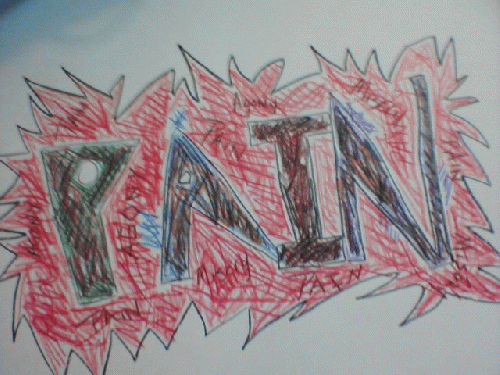by Wendy Burnett
The terrors of living with chronic non-cancer pain in this climate of opiophobia and prescription drug crackdowns are horrible and constant. Patients are never sure when their doctor will reduce the amount of pain medications he's willing to prescribe, or when the DEA will come after a doctor who is willing to prescribe adequate amounts of medication and leave patients scrambling to avoid the torture of having no medication at all.
I understand the torment of living with chronic pain and having no medication available to ease it; the hopelessness of knowing the pain will ALWAYS be there; and the times when the agony is so bad, so totally unbearable, that you desperately search for a way to kill yourself that won't torture the people you love with guilt and regret. I've lived through all of those things, and much more.
I also understand the misery of having an addict in the family: the fear of the phone call telling you they've overdosed; the belongings that disappear into the local pawnshops to pay for drugs; the mood changes and rages. I've been there. I've lived with addicts and violent alcoholics, and I know what it's like. My heart breaks for all the people who are still in that situation, who are desperate to keep their loved one from being able to get the drug that's causing them so much pain, and who think that if the drug was just not available things would be okay again.
The problem is that if their drug of choice isn't available, they'll just switch to one that is. If they can't get oxycontin or hydrocodone, they'll switch to heroin or methadone. Washington state is finding that out the hard way. They have some of the most restrictive rules in the country regulating prescription pain-killers like oxycontin, and they HAVE reduced overdose deaths from those drugs. However, deaths from other opioids like heroin and methadone have gone up, balancing the reduction. These draconian new laws haven't reduced addiction at all; only reduced access to necessary medication for those unwilling to break the law and forced many who can no longer get medication to live with agonizing, never-ending pain. (For more on Washington's new laws and their consequences, see Washington State's Restrictive Regulations Will KILL Pain Patients )
The reason for this is that we're going about solving the "drug problem" totally backwards. Limiting the supply of anything only makes it more expensive and causes people to switch to a cheaper, more easily available product. As long as there's a demand, the pushers will FIND a way to supply it, even if they're supplying a dangerously adulterated product or a cheaper substitute with a similar effect. (If you don't believe me, check the history of prohibition. Trying to eliminate access to alcohol only increased crime and caused multiple deaths due to cheap, dangerous moonshine.)
The Solution Is Treatment!
On the other hand, if we dry up the demand by providing treatment to the addicts, it will not only reduce overdose deaths and drug-related crime, it will save millions of dollars in public funds. Treatment is much cheaper than the additional law enforcement required to catch and prosecute addicts and pushers, or to enforce ever more restrictive regulations. And locking up non-violent users for years is horrendously expensive.
Albert Einstein said that insanity is doing the same thing over and over and expecting different results. But isn't that exactly what we're doing now? We've spent years passing more and more laws regulating addictive substances and increasing the amounts spent on enforcing those laws. We've spent years increasing the penalties associated with drug-related crimes and the amounts spent on keeping offenders in prison. Yet, as we've passed more laws and increased penalties, drug use and the crime associated with it has also increased.
Isn't it time to try something else? Isn't it time to try something that won't interfere with the doctor-patient relationship, or force doctors to become mind readers? Isn't it time to try something that won't force the people who have a legitimate need for these medications to live in agony because their doctors are afraid to prescribe them in adequate amounts, or at all? Shouldn't we now look for a solution that WORKS, instead of throwing more time, energy, and money into solutions that HAVEN'T worked?
Legal solutions to the addiction problem haven't worked. It's time to try medical/psychological solutions for a medical/psychological problem.







